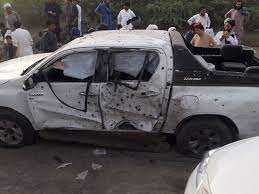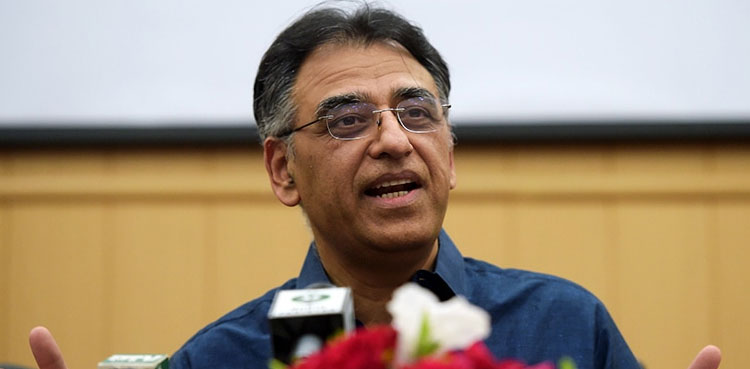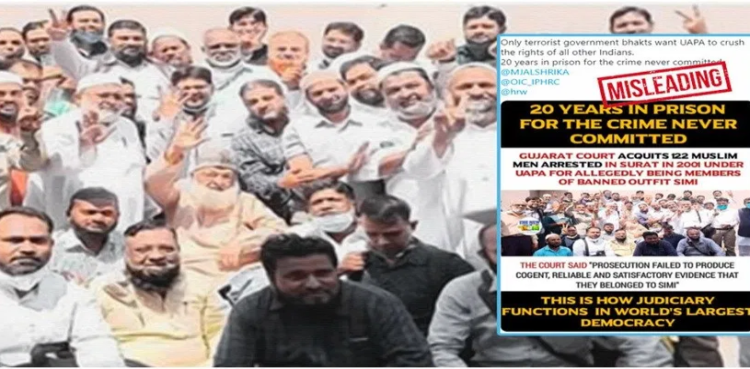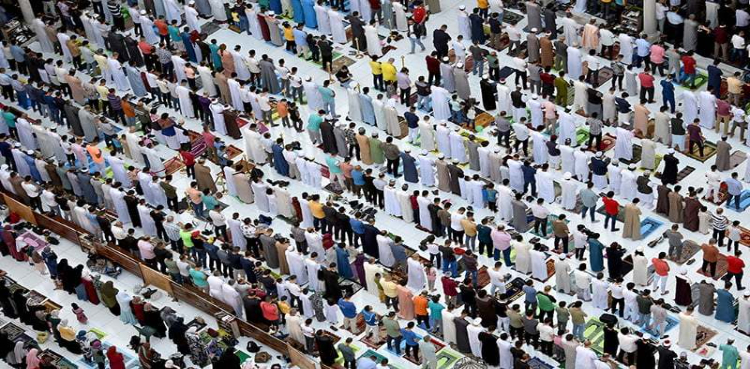WEB DESK
United Nations Secretary General António Guterres on Saturday said that the damage caused by the super floods in Pakistan was caused by climate change and that helping Pakistan was not about generosity but about justice and that the massive loss and damage in the country has created ground for a serious discussion about this topic at the upcoming global climate change conference, COP27.
PM Shehbaz Sharif accompanied by the UN Secretary General arrived at Usta Muhammad in District Jaffarabad of Balochistan today.
The Balochistan chief secretary briefed them about the devastation caused by the deluge and the ongoing rescue and relief activities by the government.
They also visited a makeshift school set up for flood survivors in the area and interacted with children.
After the visit, they also interacted with people at a relief camp established by the government to house flood victims of Usta Muhammad.
Sindh Visit
Earlier in the day, the duo also visited Sukkur where they were briefed by Sindh Chief Minister Murad Ali Shah.
Guterres met Foreign Minister Bilawal Bhutto Zardari and the Sindh administration to deliberate on the relief and rehabilitation measures required to put Pakistan back on track.
He also met the flood victims and surveyed the damage caused by floods first-hand.
Guterres said that from what he has seen and heard so far, there may have been a great loss of lives and infrastructure, but there was no loss of hope.
“Humanity has been waging war on nature and that nature is now striking back,” he said.
“Nature strikes back in Sindh, but it is not Sindh that made the emissions of greenhouse gases that have accelerated climate change so dramatically,” he said adding that the level of destruction in Sindh today was a “very unfair situation.”
The UN chief said that it is essential for the international community to understand three things:
“First is that Pakistan, including Sindh, needs today massive financial support to overcome this crisis,” he said, adding that “it is not a matter of generosity, it is a matter of justice.”
“Second, we need to stop the madness with which we are treating nature,” he said, noting that the scientific community we need to cut down emissions by 45% by 2030.
“I am not talking about the end of the century, not talking about 2050. I am talking about now, now is the time to reduce emissions,” he said, adding that this will become part of essential discussions in Cairo at the COP27.
“The fact is that we are already living in a world where climate change is acting in such a devastating way.,” he said, adding that there must be massive support for adaptation.
“Pakistan is one of the 15 hotspots for climate change,” he said adding that it was important for the world to realize that and to “be able to prepare for the next disaster and to be able to resist the next disaster.”
To be able to do that Pakistan and other countries like it require huge investments for building resilient infrastructure and communities.
“These investments needs to be provided and that is why we are asking for a strong increase in the financing of adaption of resilient infrastructure,” he said.
“There has not yet until now been a serious discussion about loss and damage and COP in Cairo will for the first time create the conditions for a serious on loss and damage,” the UN chief said, whilst admitting that his organization’s efforts are just a drop in the ocean of what is needed due to limited capacity and resources.
“One thing you can be absolutely sure, we are in total solidarity with the Pakistani people we will do everything we can, not only to use our limited capacity to raise awareness,” he said.
He added that the UN will request those that have the capacity to support Pakistan that they help Pakistan, “that they do it now, that they do it massively and that they do it also looking into the preparation of this country to face future challenges to be able to protect their population when those future challenges are coming.”
“Our commitment and our very strong and emotional solidarity is something that you can count on,” he said.
Guterres then accompanied Prime Minister Shehbaz, FM Bilawal and Sindh CM Shah to visit a flood camp near Sukkur where they were briefed about the relief efforts.
Early in the day, Prime Minister Muhammad Shehbaz Sharif alongside UN Secretary General Antonio Guterres arrived in Sukkur to conduct a visit to the flood-hit areas of Sindh.
The duo was also accompanied by members of the federal cabinet and the UN delegation.

















































